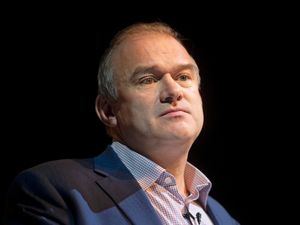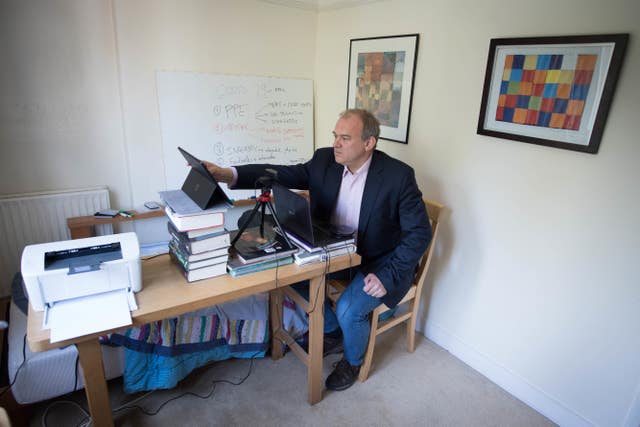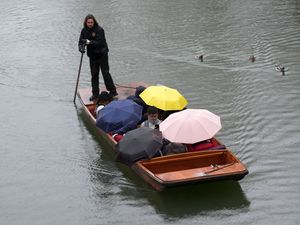Sir Ed Davey: New leader is a veteran of Liberal Democrat politics
The former Cabinet minister has won the leadership at his second attempt.

Sir Ed Davey has been a prominent figure in the Liberal Democrats for decades and now faces a battle to revive the party’s fortunes.
At the height of the Lib Dems’ influence under Nick Clegg, Sir Ed sat at the Cabinet table as energy and climate change secretary during the coalition with the Tories.
But the decision to join forces with David Cameron proved disastrous for the party, with Sir Ed among dozens of Lib Dem casualties in the 2015 election, losing his Kingston and Surbiton seat to his Conservative rival.

He won the seat back in 2017 but did not stand for the leadership after Tim Farron quit, explaining that he wanted to spend time with his family – wife Emily, their severely disabled son John and daughter Ellie.
In the 2019 leadership contest, prompted by the resignation of Sir Vince Cable, 54-year-old Sir Ed was defeated by Jo Swinson, who subsequently lost her own seat in December’s general election.
It has been a long road to the leadership for Sir Ed, who was first elected in 1997 and was chief of staff to former leader Sir Menzies Campbell.
In 1994, before entering Parliament, Sir Ed won a bravery award for rescuing a woman who had fallen on to the tracks at Clapham Junction station in south London.

His early life was marked by tragedy, with his father dying when he was four and his mother when he was 15.
Sir Ed attended the private Nottingham High School – former Labour minister Ed Balls was in the year below – and then studied politics, philosophy and economics (PPE) at Oxford.
The scale of the task now facing the new leader is clear – the Lib Dems won 62 seats in 2005 and 57 in 2010 but have since struggled in general elections.
In 2015 they were reduced to a rump of just eight MPs; in 2017 that rose to 12 but fell back to 11 in 2019.
But with Labour moving towards the centre following Sir Keir Starmer’s leadership victory, the space for the Lib Dems in British politics may be further squeezed.





